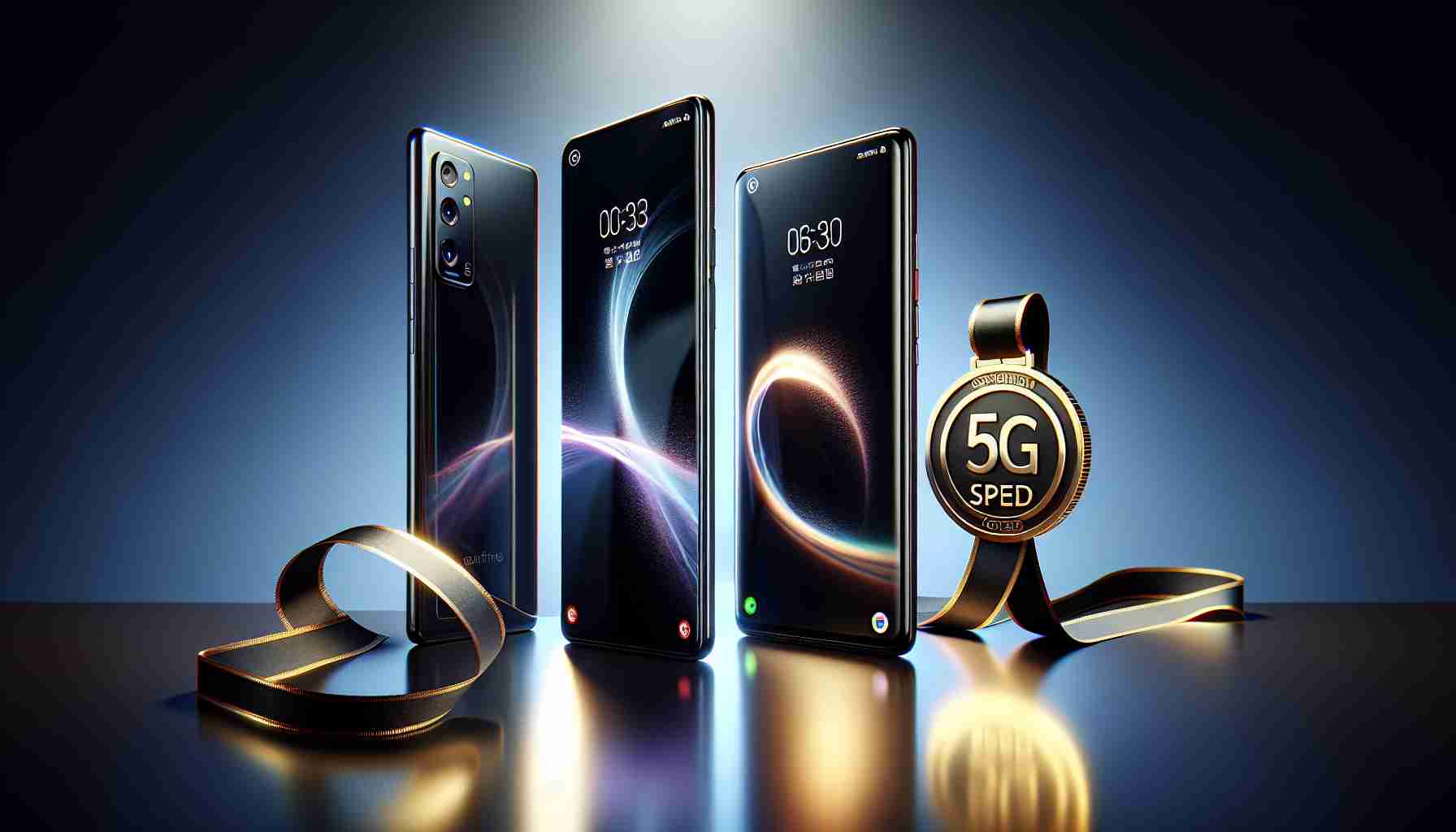The race for smartphone supremacy sees Apple and Samsung neck and neck in terms of customer contentment, though Samsung secures a marginal lead with the new generation of 5G users.
Amid constant competition in the smartphone industry, both tech giants have emerged as frontrunners in the American Customer Satisfaction Index’s (ACSI) 2023-2024 study. This study highlights that the allure of cutting-edge 5G smartphones has played a significant role in driving overall industry contentment to unprecedented highs. According to the latest ACSI results, satisfaction levels have reached a benchmark score of 81, reflecting a 3% increase over the previous year.
In a more granular look at brand performance, Apple has shown consistency by augmenting its score slightly, to an 82 out of 100. Apple’s growth is mirrored by Samsung’s similar ascension, positioning both companies at the top with matching scores. On the other hand, Google and Motorola also witnessed fluctuations, with Google’s score dipping and Motorola’s rising, ultimately bringing them to a joint score of 77.
When dissecting the popularity of 5G technology specifically, Samsung takes a slender advantage with an 83, against Apple’s 82, indicating a particular resonance of Samsung’s Galaxy S24 amongst the 5G demographic.
In terms of the aspects that customers prioritize, traditional features such as phone call quality remain paramount with an impressive score of 86. Moreover, video quality, user satisfaction with websites, and the array of available phone features are equally appreciated by customers, all scoring 86. Other features like Bluetooth functionality and text messaging ease stand slightly below, with a score of 84.
Key Questions and Answers:
– What factors contribute to Samsung and Apple leading in smartphone satisfaction?
Samsung and Apple’s dominance in smartphone satisfaction can be attributed to their dedication to innovation, build quality, extensive ecosystems, and customer service. Their ability to integrate hardware and software smoothly adds value to user experience.
– How significant is the introduction of 5G to the rankings?
The introduction of 5G has been significant, as indicated by the ACSI study. It has become a key point of competition, with Samsung slightly ahead in this category. This reflects the industry’s shift towards providing faster and more reliable internet connections.
– What are the challenges associated with the adoption of 5G technology?
Challenges include the availability of 5G coverage, the price of 5G-capable smartphones, and ensuring that 5G networks can handle the increased data usage without compromise to speed or reliability.
Key Challenges and Controversies:
– Network readiness: While 5G promises faster speeds and better connectivity, the actual availability of 5G networks is uneven, posing a challenge for users to fully enjoy these benefits.
– Price Points: Advanced smartphones, especially those with new 5G capabilities, come with high price points, potentially alienating budget-conscious customers.
– Competition and Innovation: Both Samsung and Apple must continuously innovate to stay ahead, leading to controversies over patent infringements and the copying of features.
– Environmental and Ethical Concerns: The production and disposal of smartphones raise environmental and ethical issues, including the sourcing of raw materials and the lifecycle of devices.
Advantages and Disadvantages:
– Advantages of 5G smartphones:
– Faster internet speeds enable better streaming and downloading experiences.
– Low latency improves responsiveness for online gaming and other real-time applications.
– Potential for innovation in fields such as augmented reality (AR) and the Internet of Things (IoT).
– Disadvantages of 5G smartphones:
– Higher device cost due to new technology.
– Increased power consumption leading to potential battery life issues.
– Limited 5G coverage areas, reducing the availability of the service in some regions.
Suggested Related Links:
Keep in mind that satisfaction scores are dynamic and can be influenced by future product releases, customer service interactions, and market trends. The smartphone industry also faces broader issues such as digital privacy, security, and the ever-evolving consumer preferences, which can impact these satisfaction rankings over time.
The source of the article is from the blog revistatenerife.com
